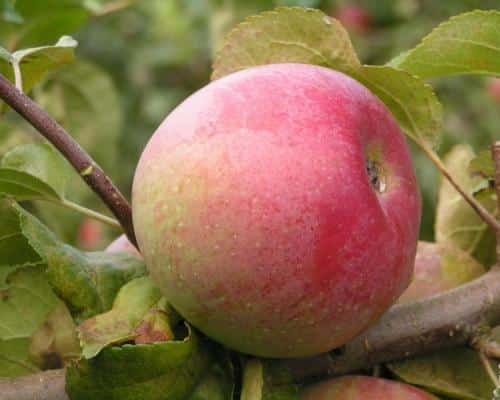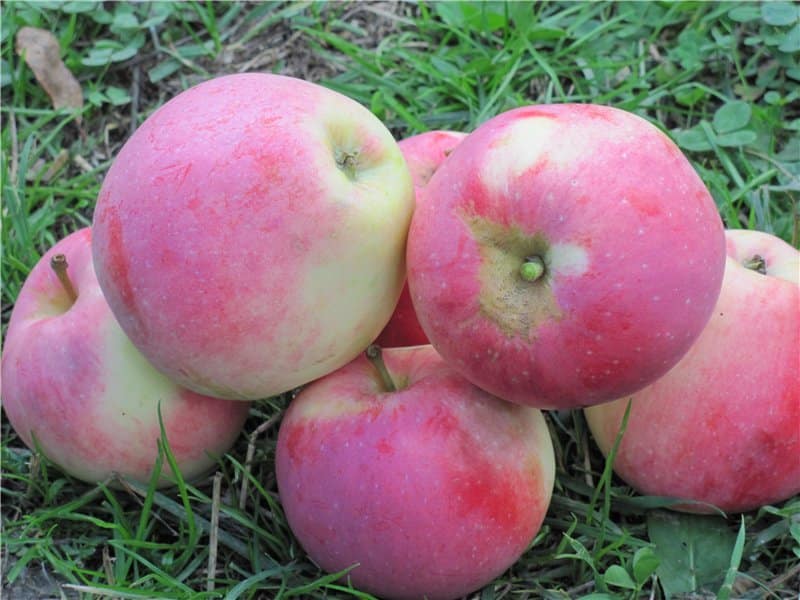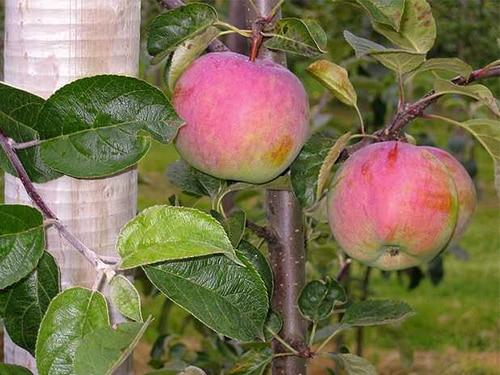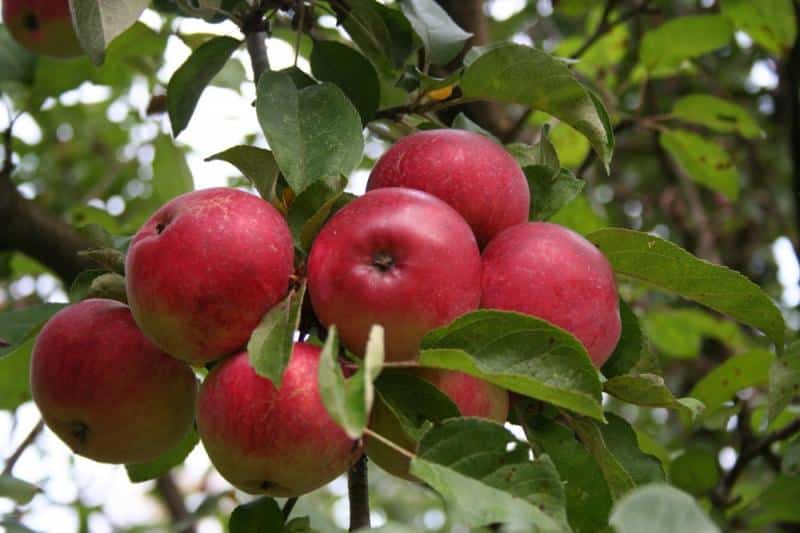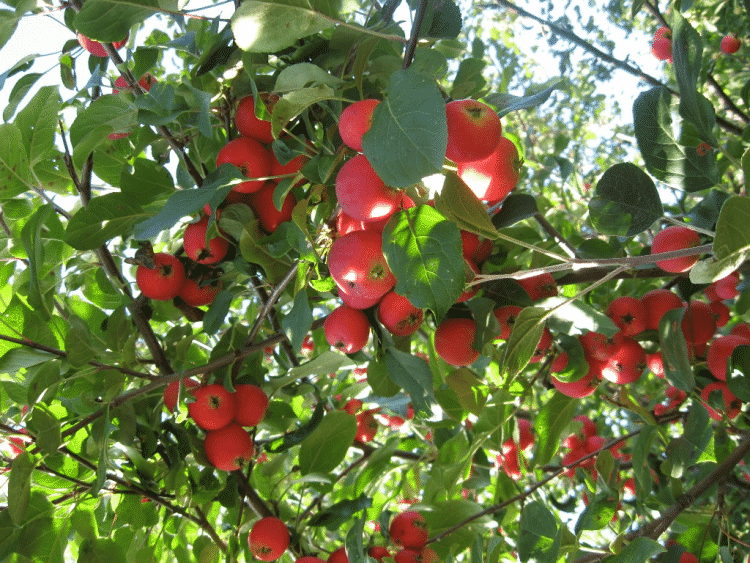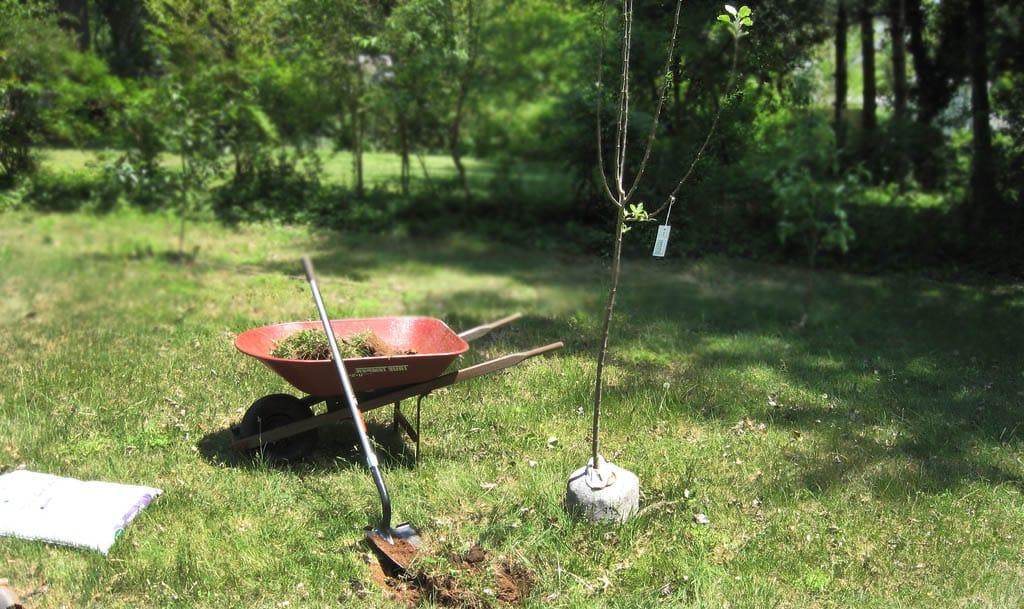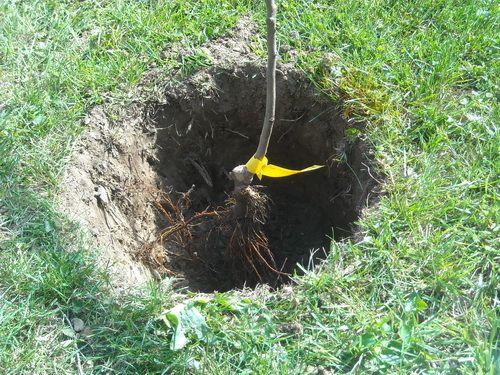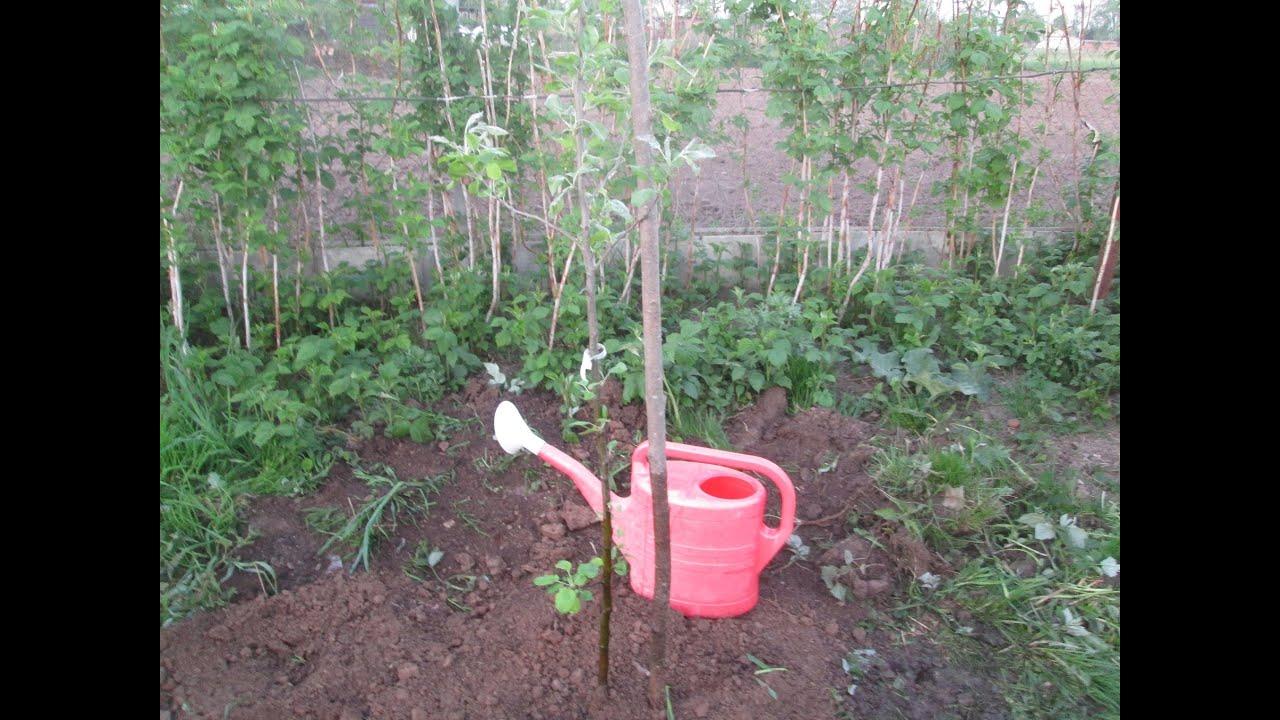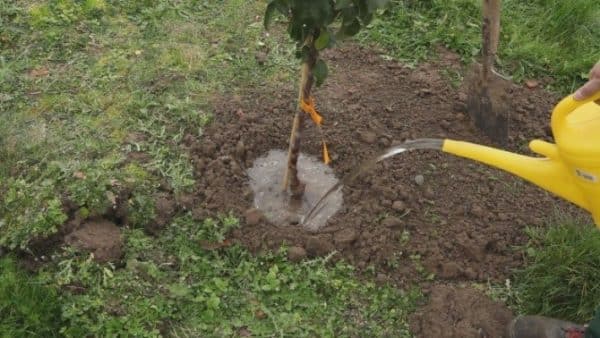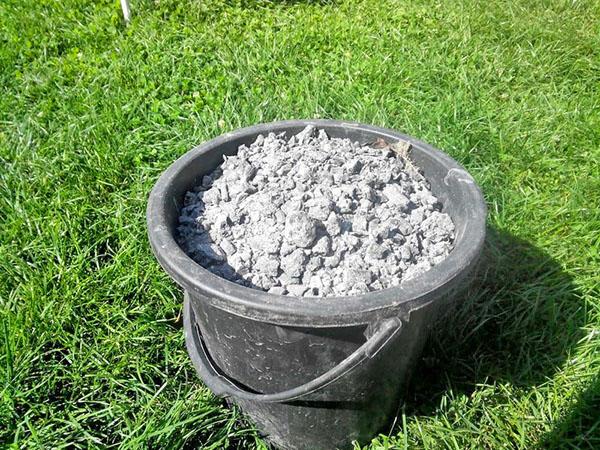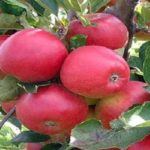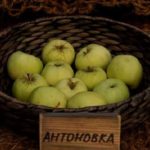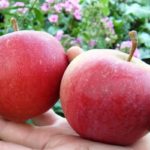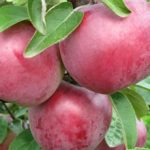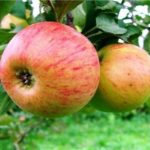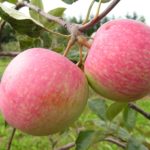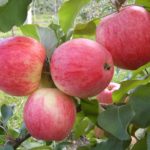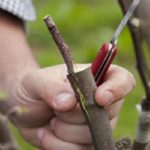The Veteran apple tree belongs to the early-fruiting winter hybrids. Thanks to its high yield, the hybrid quickly spread throughout Russia.
- History of selection of the early fruiting variety Veteran
- Advantages and disadvantages
- Description of the tree
- Trunk height
- Crown diameter
- Annual growth
- Appearance and taste of fruits
- Growing conditions
- Specifications
- Resistance to diseases and pests
- Frost tolerance and drought tolerance
- Pollination and yield
- Transportability and storage of fruits
- Landing rules
- Preparation of seedlings
- Soil composition
- Schemes and dimensions of the hole
- Landing technology
- Seasonal Care Basics
- Watering
- Soil care and fertilizing
- Pruning and crown formation
- Preventative treatment
- Preparing a tree for winter
History of selection of the early fruiting variety Veteran
The winter apple tree variety Veteran was obtained by Russian breeders in 1961 through open pollination of the King variety.
Advantages and disadvantages
The advantages of the Veteran hybrid include:
- precociousness;
- productivity;
- duration of storage after harvesting;
- versatility of use.
Among the disadvantages is the risk of scab if there is wet weather outside for a long time.
Description of the tree
Before purchasing a seedling, you should study all the characteristics of the plant.
Trunk height
The Veteran apple tree is a medium-sized hybrid. The average tree trunk grows about 3-4 m.
Crown diameter
The crown is medium dense, not wide. The shape resembles a regular ball.
Annual growth
Annual growth is average; the tree grows by about 5-7 cm per year.
Appearance and taste of fruits
Apples have a rich red-scarlet skin color. The pulp is juicy, greenish-white in color, and tastes more sweet. The fruits are round in shape. The structure of the skin is dense; you can notice a white waxy coating.
The tasting rating of the fruit is 4.4 points out of 5.
Growing conditions
The Veteran apple tree is not a capricious variety and you don’t have to put in a lot of effort to grow a seedling. It is enough to plant the tree correctly and pay attention to caring for the already mature plant.
Specifications
Another important point that gardeners must study before purchasing seedlings is the technical characteristics. Technical characteristics include yield, resistance to drought and frost, as well as immunity to diseases of fruit crops.
Resistance to diseases and pests
The Veteran apple tree has low resistance to scab, especially if there is high humidity for a long time. The tree's resistance to other diseases is high. You can also find pests on the apple tree, especially aphids. Therefore, to prevent the appearance of insects, every autumn the leaves are removed from the area, and the soil around the trunks is dug up to a depth of 15-20 cm.
Frost tolerance and drought tolerance
Hybrid Veteran is a variety that does not tolerate severe frosts. It is recommended to plant seedlings in regions with moderate winters. In the north, the plant may not take root due to harsh winters. The most favorable temperature in winter is considered to be from -20 to -25 degrees.
The plant tolerates drought more easily than frost. An apple tree can not be watered for a long time in the heat. But if the drought lasts for a very long time, in addition to the main waterings, it is recommended to carry out a number of additional ones.
Pollination and yield
The older the tree, the higher its yield. Apple trees up to 10 years old produce 20-30 kg of fruit per season. Apple trees that are over 15 years old produce 45 kg of fruit in one season. To increase productivity, fertilizing is regularly applied to the soil.
To increase productivity, next to the apple tree you will have to plant pollinating varieties of winter or autumn ripening. The hybrid belongs to the early-fruiting varieties, since fruiting begins in the 3-4th year after planting the seedling. Productivity remains at a high level every year.
Transportability and storage of fruits
One of the advantages of this variety is transportability. The fruits remain intact even during long transportation.To keep apples fresh as long as possible, they are placed in a cool place with high humidity. Under the right conditions, apples will be stored until spring.
Landing rules
Planting a Veteran apple tree is no different from planting other varieties.
Preparation of seedlings
Before planting in a permanent place, the apple tree seedling is dipped in a growth activator. This measure will allow the tree to quickly take root in a new place. Immediately before planting, to protect the roots, the rhizome is dipped in a liquid clay solution for 30-40 seconds. And then they are immediately planted in the prepared hole.
Soil composition
The Veteran apple tree is undemanding to the soil. Light, fertile soils are best suited for the plant. For example, loamy or sandy loam. The seedling also grows well on black soil. Acidity is neutral or slightly acidic. Veteran grows poorly on clay types of soil.
Schemes and dimensions of the hole
Holes for apple tree seedlings are prepared in advance, 2-3 weeks in advance. The hole is dug to a depth of 1 m and a width of 80 cm. The distance between seedlings is left from 3 to 4 m. The higher and wider the neighboring trees, the greater the distance between the trees.
Landing technology
In 2-3 weeks, dig a hole and mix the top layer of soil with manure and wood ash. Then they transfer it to the bottom. Planting pattern:
- Drive a strong stake into the center of the hole.
- Place the seedling and carefully straighten the roots.
- Dig in soil and tamp down near the trunk.
- Tie the apple tree to the stake so that the trunk remains straight.
At the end of planting, water the hole generously with warm water.
Seasonal Care Basics
Without attention, any fruit tree will produce less yield than if it was regularly cared for.Caring for an apple tree includes fertilizing, watering and crown formation. Disease prevention is also important.
Watering
The apple tree does not need frequent watering. During the fruiting season, it is enough to water the tree four times so that it has enough moisture. Irrigation of apple trees from spring to autumn:
- The plant is moistened for the first time in the spring, when bud formation begins.
- The apple tree is irrigated the second time during flowering.
- The third watering is carried out with the onset of the fruiting period.
- The last time the soil near the apple tree is irrigated is in the fall, after the harvest and the onset of cold weather.
If it is hot and dry outside for a long time, you can additionally water the plant.
Soil care and fertilizing
Before each watering, it is advisable to weed the soil in advance and remove weeds. This will also saturate the soil with oxygen.
At the beginning of the growing season, nitrogen and organic fertilizers are added to the soil.
Nitrogen helps activate the growth of leaves and buds. When buds begin to form on the tree, phosphorus and potassium are added to the soil. From organics, weed infusions, wood ash and bone meal are used. Before the onset of cold weather, the soil is mixed with manure or chicken droppings.
Pruning and crown formation
If you do not trim the crown regularly, the apple tree will become overgrown very quickly and will produce less yield. The crown of the apple tree is formed in the second year. The branches on the tree are cut off, leaving only 3-4 skeletal ones. Then every year some of the young shoots and growth are cut off. The crown is formed in the spring. In the fall, sanitary pruning is carried out. During the process, dry, diseased or damaged branches are removed. In both cases, the cut sites are disinfected.
Preventative treatment
As preventive measures against insects and diseases, every spring the apple tree is treated with Bordeaux mixture or copper-containing preparations. After 2 weeks, spraying is repeated. If insects have already appeared on the tree, use soap solutions or chemicals.
Preparing a tree for winter
Before the onset of winter, the soil near the trunk is mulched; the mulch layer should not be less than 15 cm. The lower part of the trunk is tied with pine branches to prevent mice from chewing on the bark.

